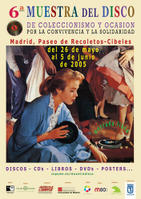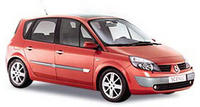
Spain awoke to the news that it had (another) heir: early this morning Letizia gave birth to Leonor, who, according to her grandmother the queen, is healthy, chubby, and a "llorona," --a wailer. Leonor's birth will eventually occasion a reform of the constitution so that women have equal rights to the throne, but that is some time off in the future. For now, a few interesting facts about royal births:
All Spaniards have identification numbers that they use as a combination social security/driver's license number. The "DNI," as it is called, is necessary for everything from paying taxes to setting up a phone account to booking a plane ticket. For most, the number is 8 digits long, but the royal family has the market on the easily-remembered numbers 1-50. The king is 1, the queen is two, and so on through their children and grandchildren. Which makes Leonor #12.
And a little history: Victoria Eugenia, the English-born wife of Alfonso XIII, was the last Spanish queen to give birth in the comfort of her own palace. Apparently, her 12-hour labor was especially arduous, but every time she cried out, her mother-in-law, the Queen Mother, would scold her, "We Spaniards do not scream when we bring a king into the world."




